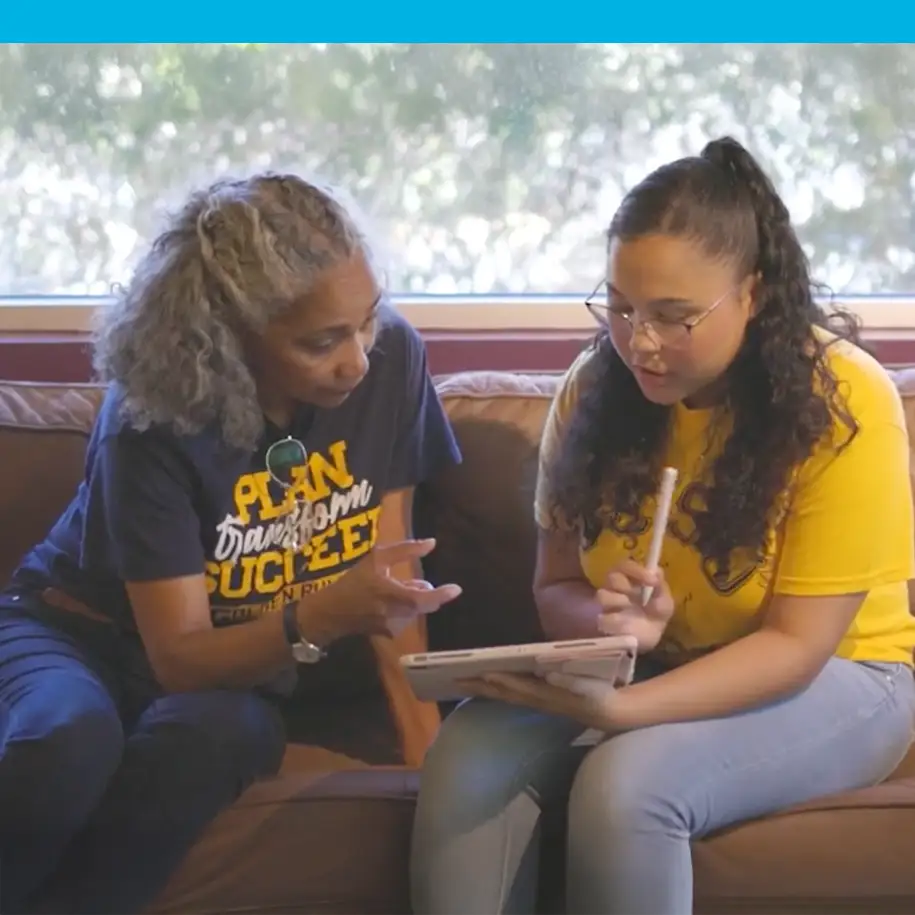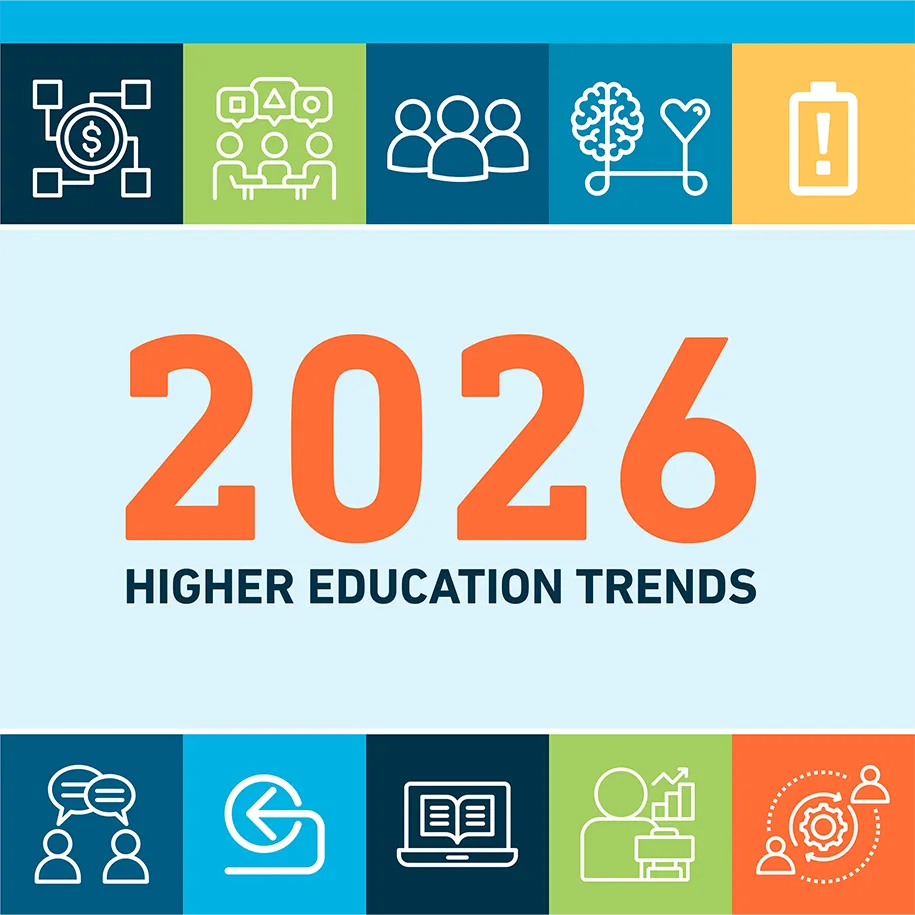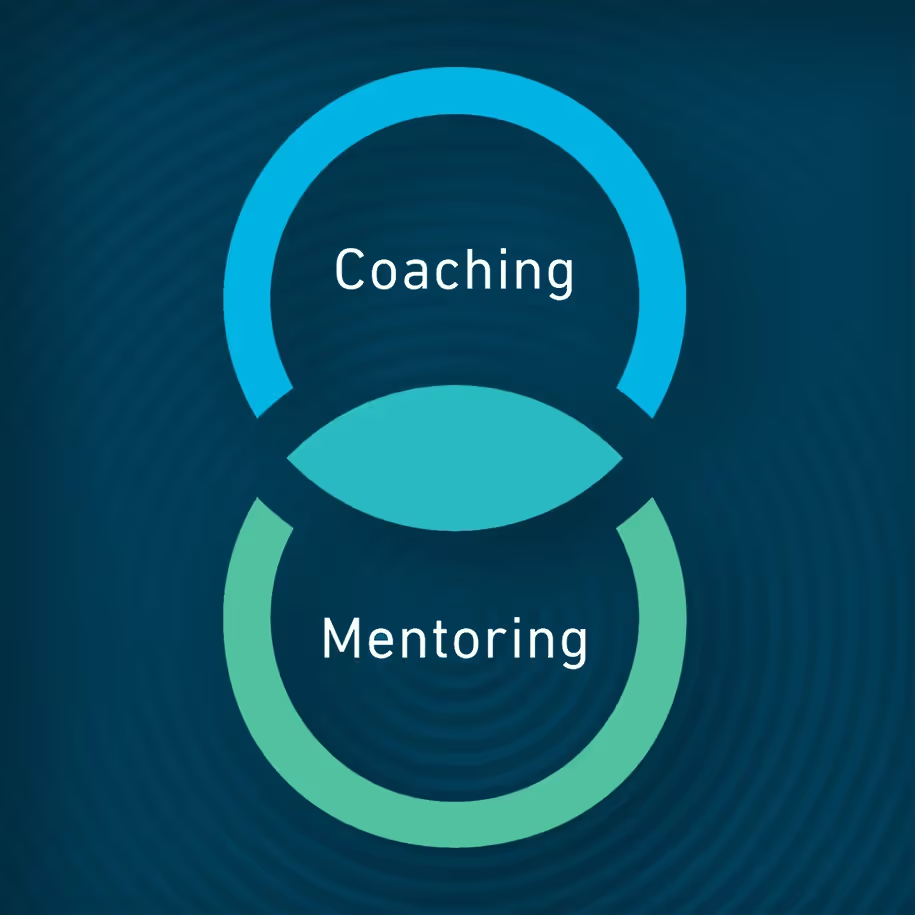
How coaching and mentoring differ — and how both encourage student participation for ultimate success
Understanding student support roles: A three-part explainer series
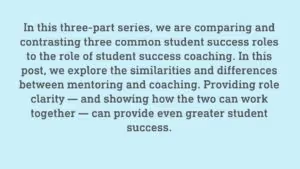
While there are distinct differences between the roles of mentoring and student success coaching, they do share an overarching objective: to help individual students grow and develop, achieve their desired goals, and reach their full potential. Yet in order to understand how a coach and a mentor can enhance each other’s efforts in supporting students, it’s important to understand how their roles differ. That’s the focus of this second piece in our three-part series exploring the differences between “coaching” and other similar-but-not-the-same roles within higher education.
What is mentoring?
Mentoring is all about connection. In fact, creating an authentic connection in a climate of trust is critical to the success of the mentoring process and the personal growth of the student. Learners who feel connected to their mentors are more likely to turn to them for guidance in challenging or confusing situations, to communicate openly and honestly as the relationship grows, and to rely on that relationship to improve their self-esteem and self-confidence. Mentors offer advice drawn from their own lives and serve more of a teaching function, with their “training” coming from personal and work experiences rather than a formal preparation program. They are typically volunteers, serving as mentors in addition to their schooling or work. Mentors are usually chosen for their specific experience – their position in a particular job or field – and may be able to introduce the student mentee to people of influence within an industry or organization. Many students view their mentors as role models who can help guide them toward and/or along a particular career path, especially when it’s the same path traveled by the mentor. Mentoring tends to be more informal than coaching, and the meetings can happen in any number of settings.
What is coaching?
Coaching is also based on trust building and personal connection, though it’s an important student support role that tends to be more formal and structured than mentoring. A first-year coach at InsideTrack, for instance, receives over 100 hours of training and observation/feedback. Creating a collaborative, individually tailored approach to each student’s needs, coaching typically takes a proactive approach, and can be implemented separately from or alongside mentoring services. Unlike the comparative informality of mentoring sessions, InsideTrack coaching follows research-proven methodology that includes holistic assessment of potential risk factors and development of specific cognitive and non-cognitive skills to help students overcome barriers to short- and long-term success.
Designed to support institutional goals, coaching carefully balances meeting the immediate needs of students and helping them solve problems as they arise with making sure students are aware of the various institutional resources and how to engage with them effectively. Active listening is integral in fostering engagement, improving assessment and deepening relationships. Coaches also help nurture long-term personal growth and development through small, meaningful changes and the integration of new strategies, habits, and mindsets into learners’ lives. And the insights coaches glean from working with students are compiled into reports for each institution, providing a window on issues that matter to their students.
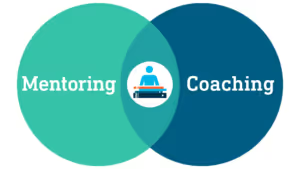
One scenario, two approaches
Let’s say a student is leaning towards engineering as their major. They’re thinking about becoming a civil engineer, but they want to explore other engineering paths and related careers that could require a different degree.
The mentor starts by getting to know and building a personal connection with the student. The mentor might be a student in the college’s engineering program or an alumni who works as a civil engineer. The information they provide is informal and based on their own specific experience. The mentor provides advice to the student and tells them what they should do, based on conversations the mentor and student have had about the student’s personal hopes, challenges and goals for their degree.
The coach starts with a holistic assessment, asking the student a variety of questions to better understand their experience and get to the heart of their goals in pursuing an engineering-related degree. The coach isn’t an engineer and doesn’t offer advice. Instead, the coach asks open-ended questions and targets areas of growth. In doing so, the coach learns that the student had difficulties with algebra in high school and is now struggling with their first college calculus course, which is a prerequisite to the college’s engineering degrees. In addition, the student shares that they have severe test anxiety. Working together, the coach and student make a plan for accessing tutoring for additional math help. They also brainstorm ways to help deal with the test anxiety. And over the course of multiple sessions, they create a roadmap that will help the student not only tackle the math prerequisite, but also determine the best engineering pathway for them based on their core values and career aspirations.
Better together
Mentors and coaches both play a positive, supportive role in students’ lives, helping them – in their own way – build skills that will serve the students well every day, overcome obstacles, and successfully achieve their goals. The work of mentors and coaches is complementary and should be regarded that way.
In part three of our three-part series, we explore the difference between coaching and counseling.
Did you miss the first part of this explainer series where we compared and contrasted coaching and advising? Be sure and catch that insightful blog post here.
Coaching solutions proven to advance all learners
Whether you’re looking to help students persist through completion or to improve career outcomes for job seekers and employees, our holistic coaching solutions can help you achieve meaningful outcomes.

